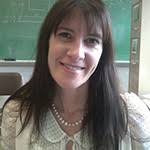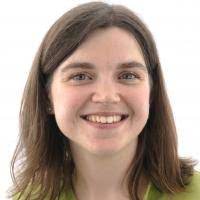Plenary Speakers:
Fabiana Cardetti

Biography: Fabiana Cardetti is a Professor at University of Connecticut. Her current research interests are in Mathematics Education, including college mathematics teaching and learning, mathematics teacher education, and K-12 mathematics education. In 2021, Professor Cardetti was appointed Courtesy Professor in the Department of Curriculum and Instruction at the Neag School of Education. She was also awarded the NSF Noyce Grant to support the project Developing Mathematics Teacher Leaders for Connecticut Alliance School Districts.
Title: Graph Theory: From Königsburg to Connectomes
Title: Mathematicians involved in educational research: Implications for mathematics teaching and learning at the K-20 levels
Abstract: Mathematics education in the United States is at a critical crossroads. The latest national and international assessments show that US students struggle compared to those from other developed nations, particularly in solving ‘real world’ problems. There is no question that mathematical understanding is essential for civic engagement and that sophisticated mathematical approaches drive important decision-making in modern society. Yet, after several decades of educational reforms aimed at improving mathematics teaching and learning, we continue to observe inadequate mathematical understanding at all grade levels. The disruption in academic learning caused by the COVID-19 pandemic has highlighted and exacerbated this issue for many of our students. The story is not all grim, however, as teams of researchers around the world are conducting studies not only to increase student achievement and engagement in mathematics but also to understand and test what teachers need to support and sustain such increase. In this talk, I will present some of the research projects I have engaged in over the years that offer a peek into what can be done to integrate mathematical expertise for the improvement of the teaching and learning experiences from Kindergarten through Graduate School.
Karen Lange

Biography: Professor Lange’s interests are in computability theory, an area of logic that explores the algorithmic content encoded in mathematical problems. She studies the computational complexity of problems associated with algebraic structures such as real closed fields, fields that are generalizations of the real numbers, and free groups. Answering these computational questions often requires using tools from model theory, another area of logic, and algebra.
Title: Climbing (or Finding Paths) through Trees: Computing the difficulty of mathematical problems
Abstract: You can make a simple family tree by starting with a person at the root and then adding two branches for her parents, and then adding two branches for the parents of each of her two parents, and so on. Such a family tree is an example of a binary tree because each level of the tree has at most two branches. We’ll see that every binary tree with infinitely many nodes has an infinite path; this result is called Weak Kőnig’s Lemma. But just because we know a path exists, doesn’t mean we can find it. Given Weak Kőnig’s Lemma, it’s natural to ask whether we can compute a path through a given binary tree with infinitely many nodes. It turns out the answer to this “Path Problem” is “no”, so we say that the problem is not “computable”. But then what exactly is the computational power of this Path Problem?
Using the Path Problem as a test case, we will explore the key ideas behind taking a “computable” perspective on mathematics (over an “existence” one) and describe an approach for measuring the computational power of mathematical problems. We’ll see that the computational power of problems varies widely and studying problems’ power helps to illuminate what really makes problems “tick”.
This talk will highlight ideas from graph theory, theoretical computer science, and logic, but no background in any of these subjects is necessary.
Schedule:
Saturday, October 22nd, 2022
University of Connecticut, Storrs, CT
For the details please go to Abstracts. All times are in EDT (Eastern Daylight Time).
| 8:45-9:00 am | Check-in and opening remarks | ||
| 9:00-10:00 am | Plenary talk I (MCHU 102) | “Mathematicians involved in educational research: Implications for mathematics teaching and learning at the K-20 levels” | Fabiana Cardetti |
| 10:00-10:15 am | Coffee Break | ||
| 10:20-11:30 am | Activities | Activity I (Michael Gaiewski) in MCHU 101 | Activity II (Java Villano) in MCHU 102 |
| 11:30 am-12:00 pm | Lunch Break | ||
| 12:10-1:00 pm | Graduate school panel | MCHU 102 | |
| 1:05-2:15 pm | Activities | Activity III (Hyungue Lim) in MCHU 102 | Activity IV (Benjamin York) in MCHU 101 |
| 2:20-3:00 pm | Poster session | MCHU 101/102 + Online | |
| 3:00-4:00 pm | Plenary talk II (MCHU 102) | “Climbing (or Finding Paths) through Trees: Computing the difficulty of mathematical problems” | Karen Lange |
Organizers: Corrie Ingall, Asimina Hamakiotes, Kimberly Savinon.